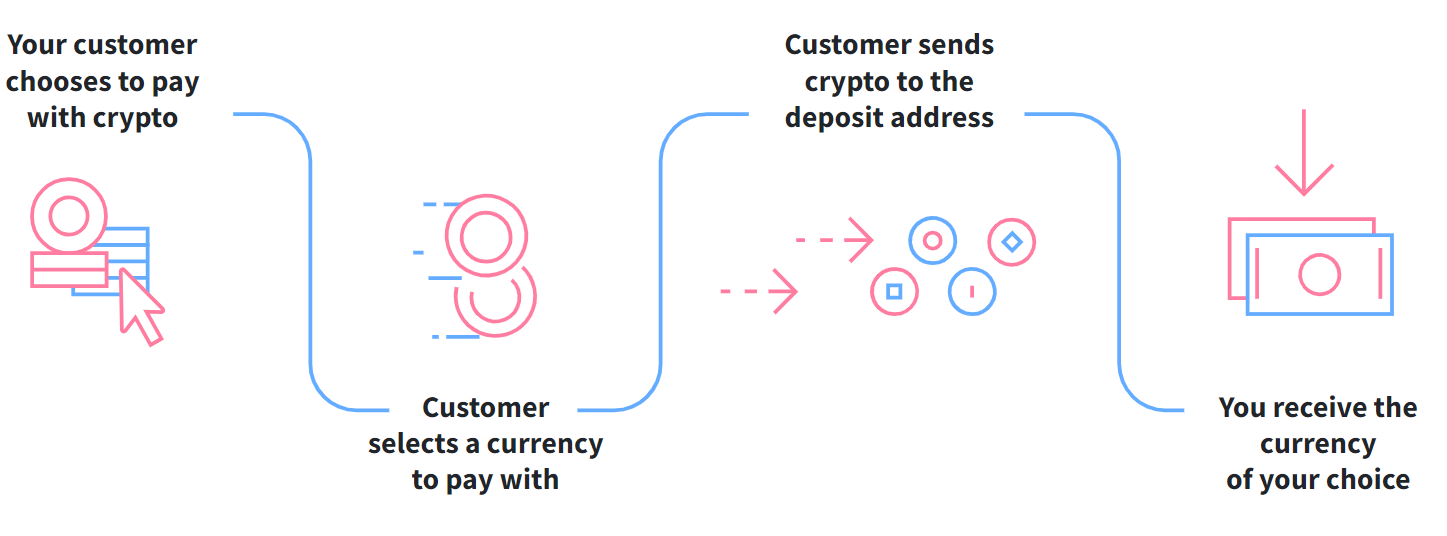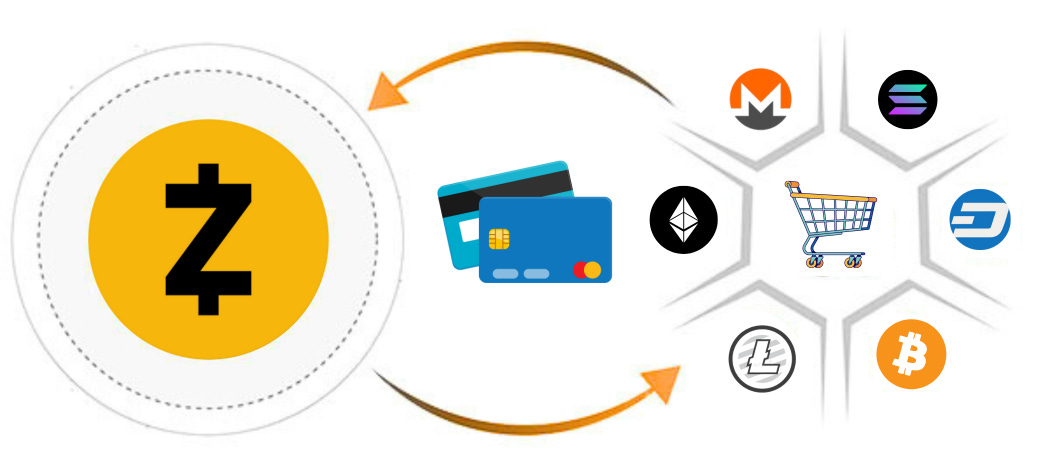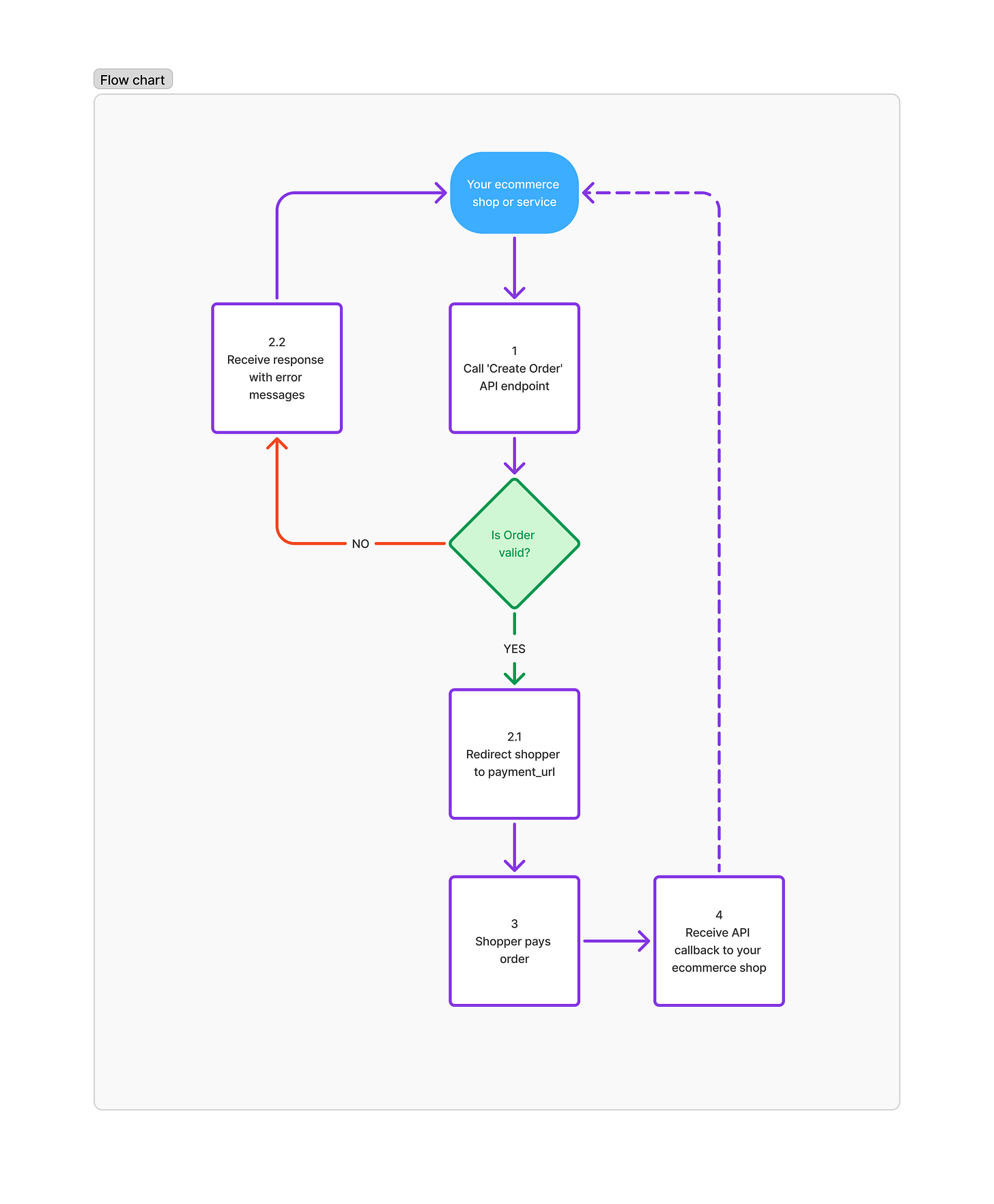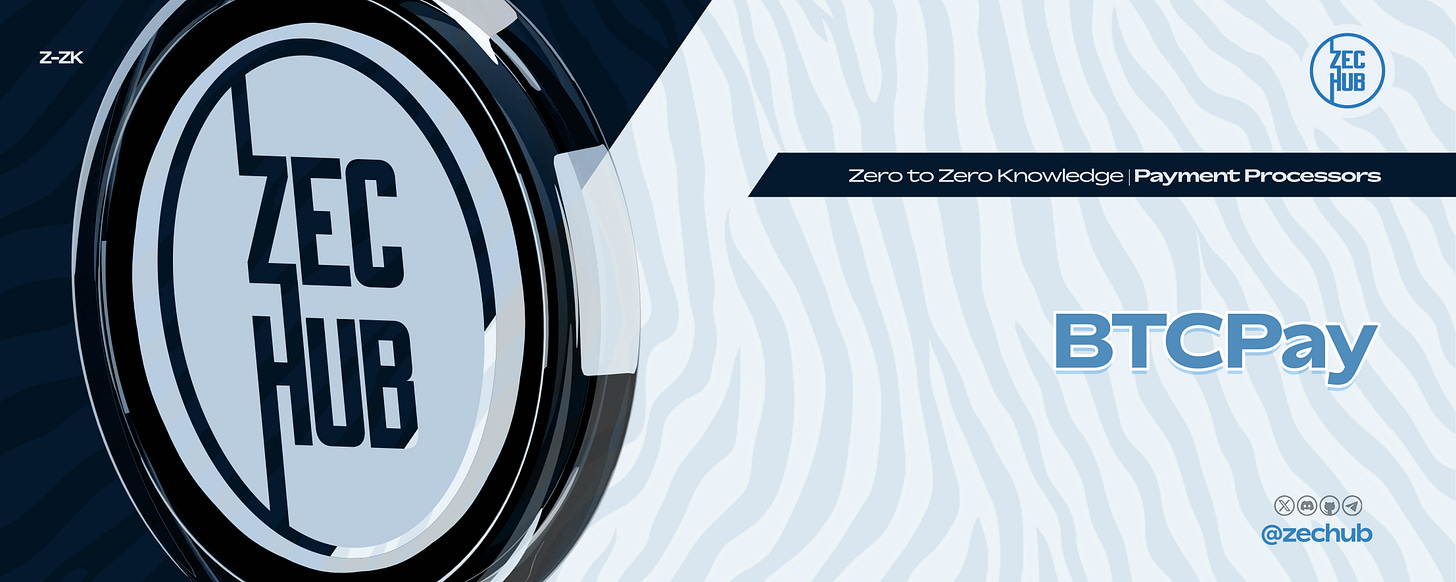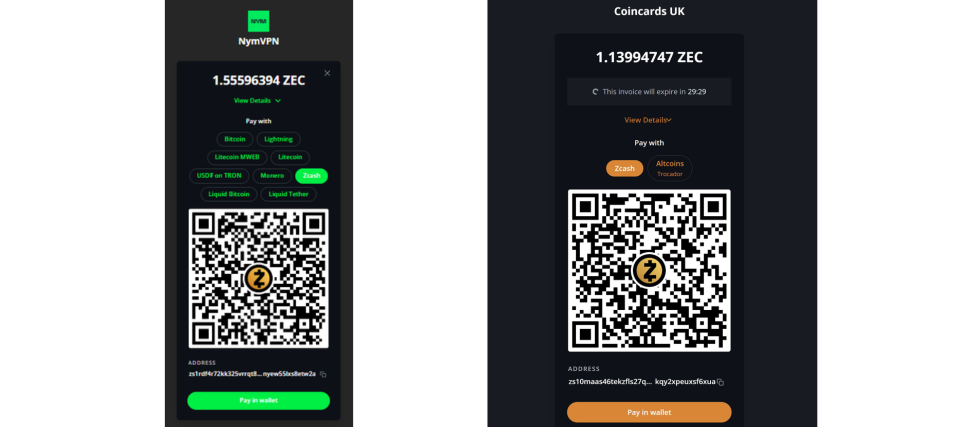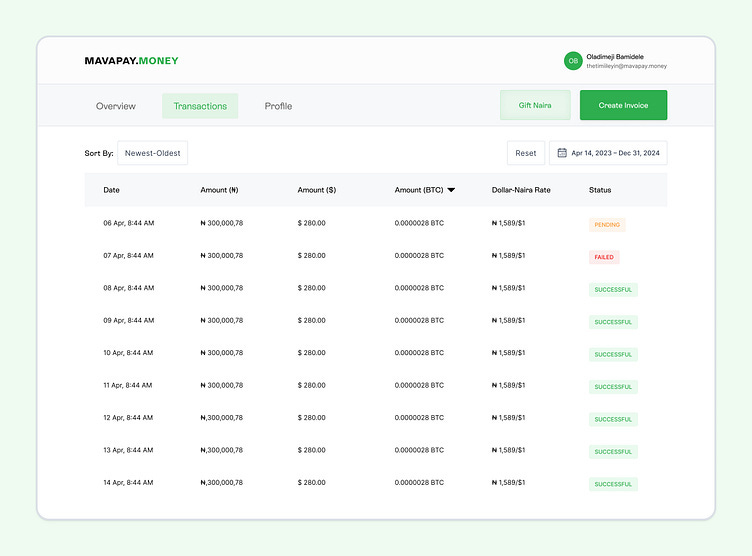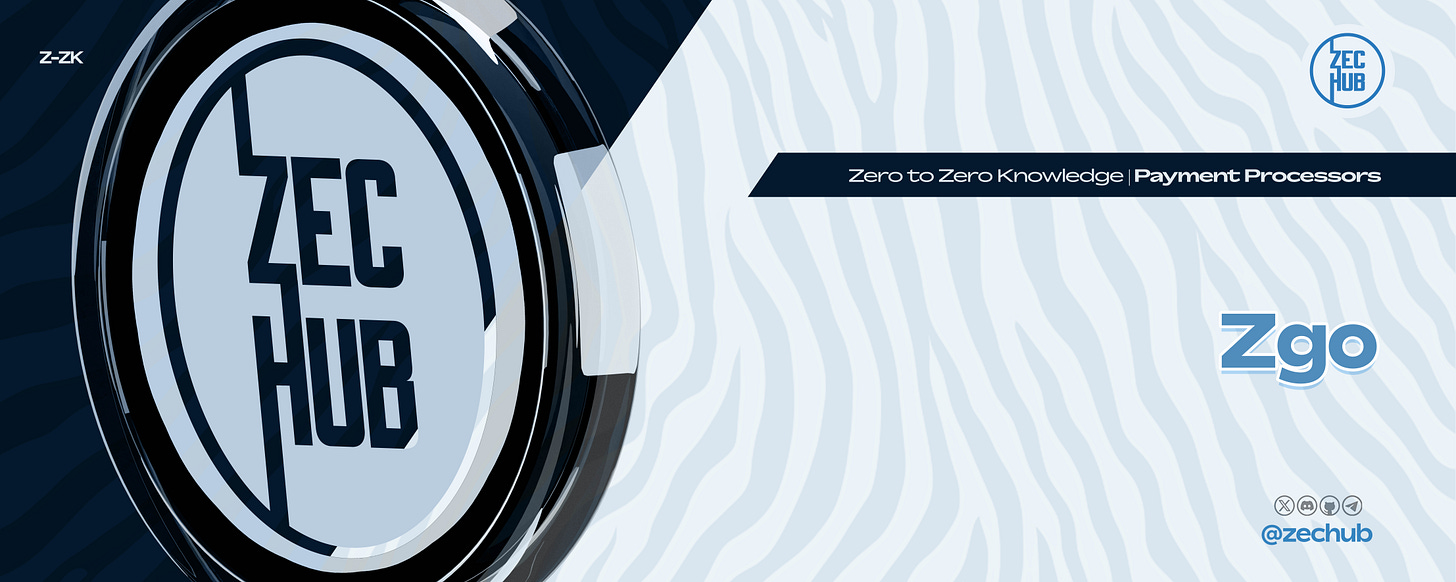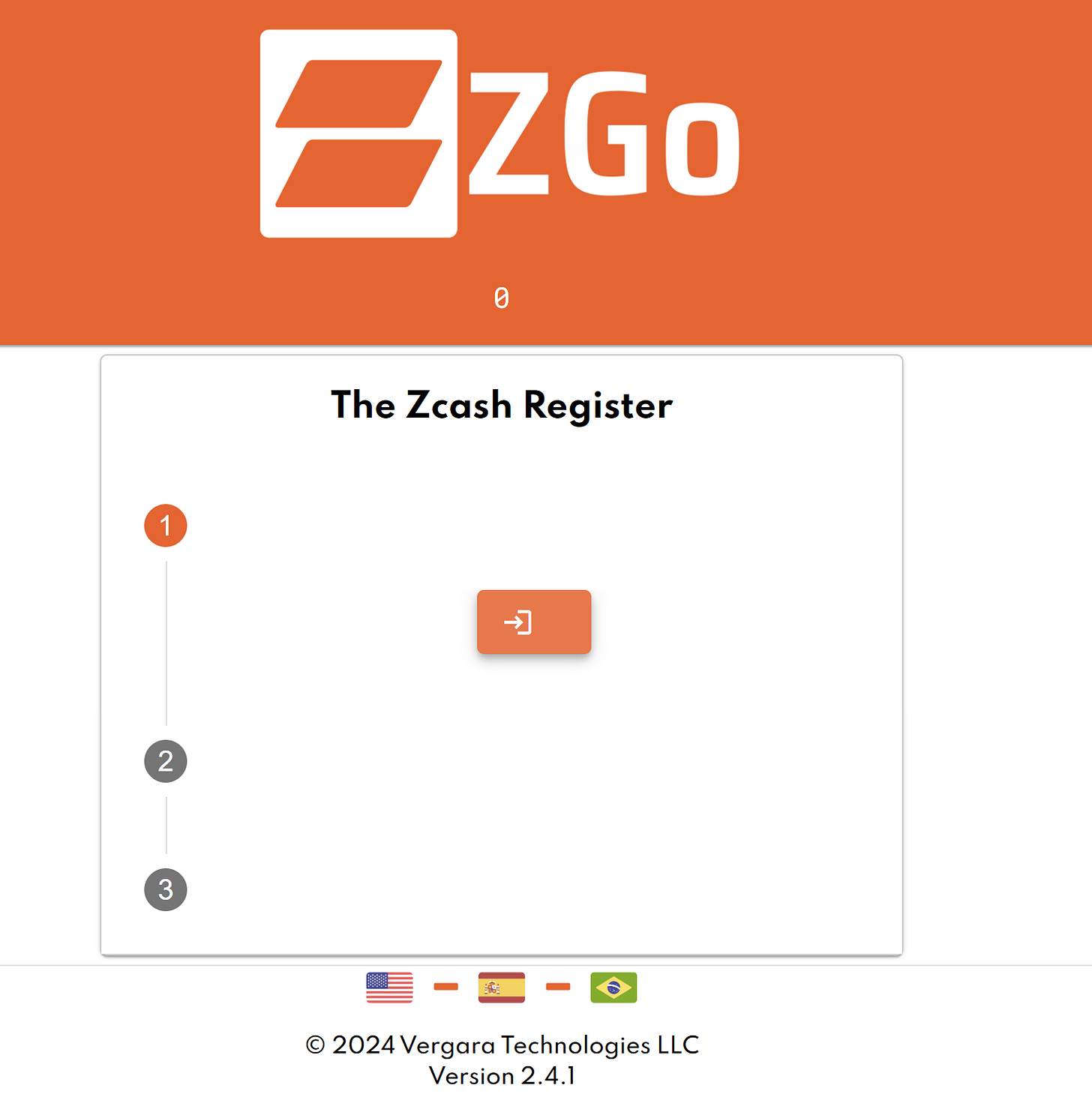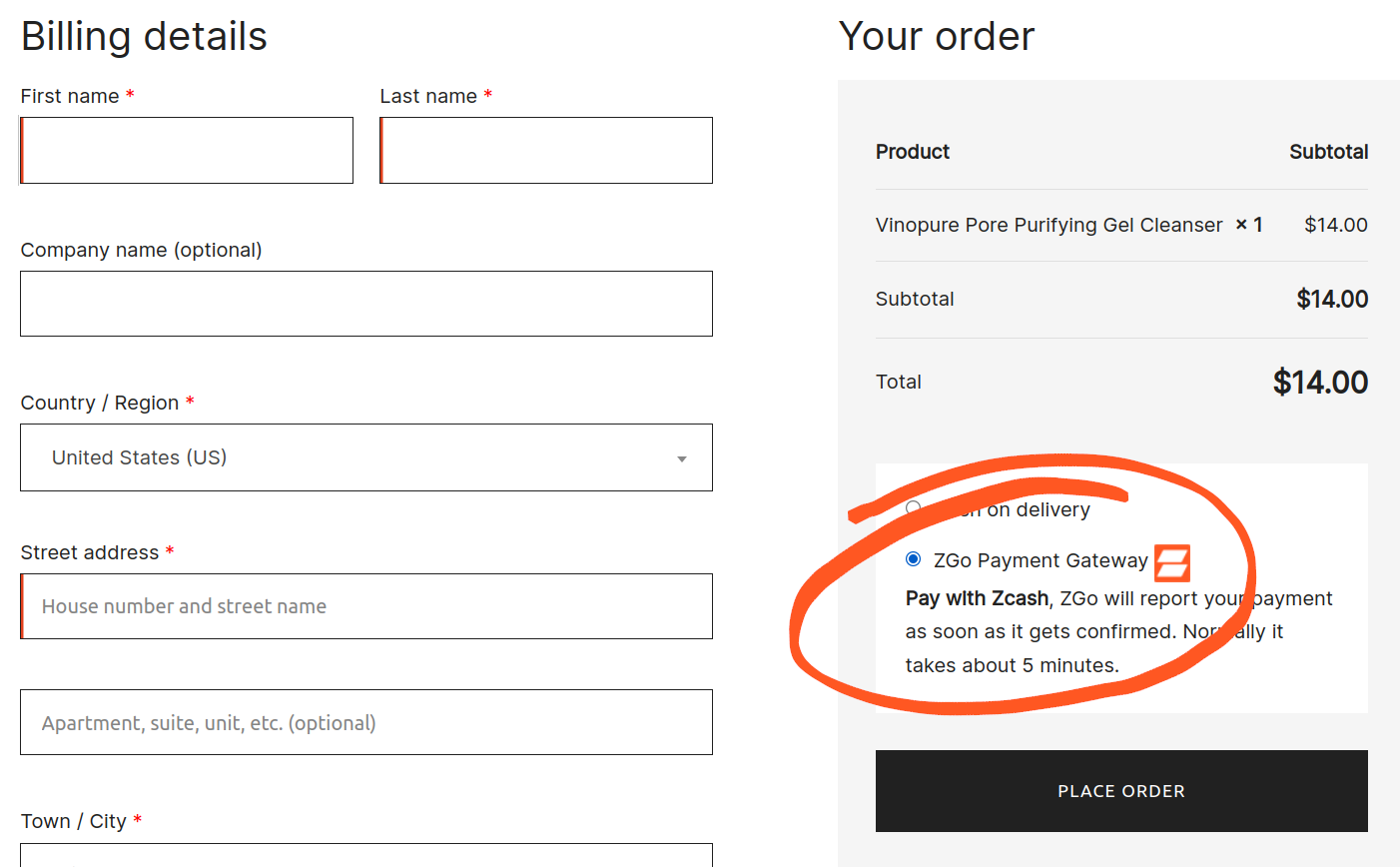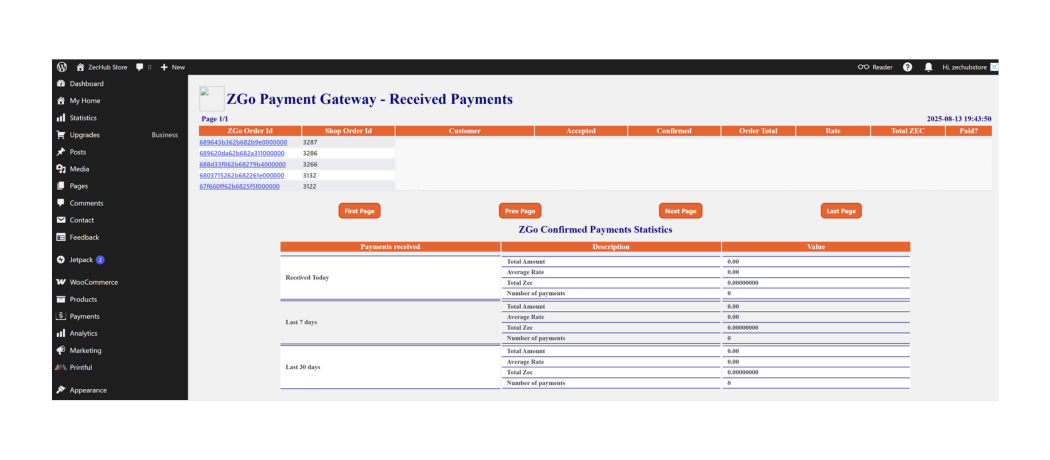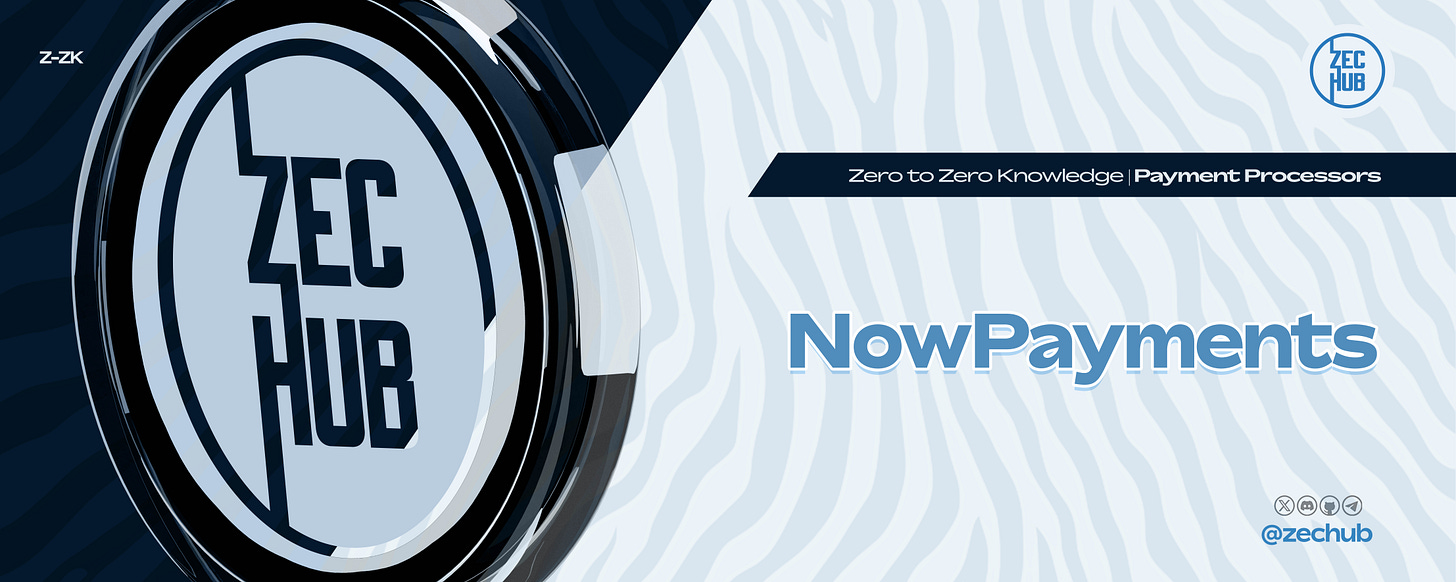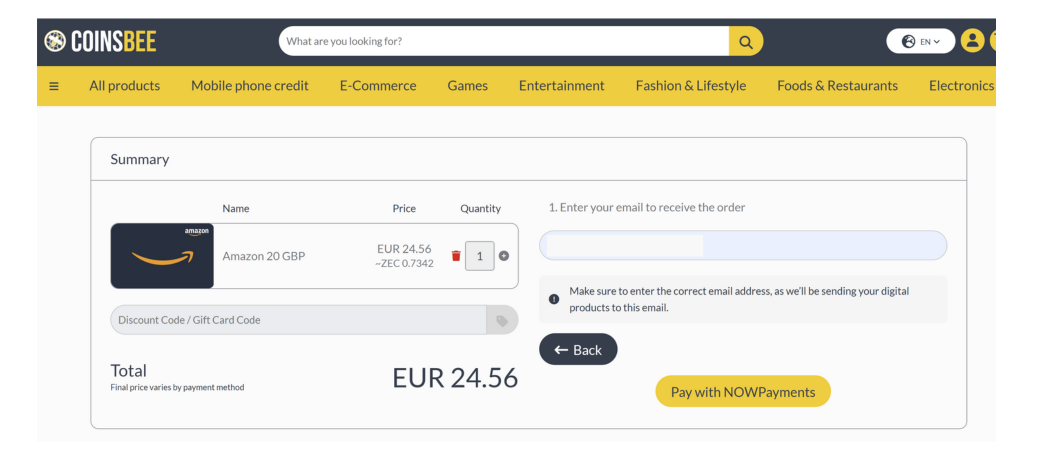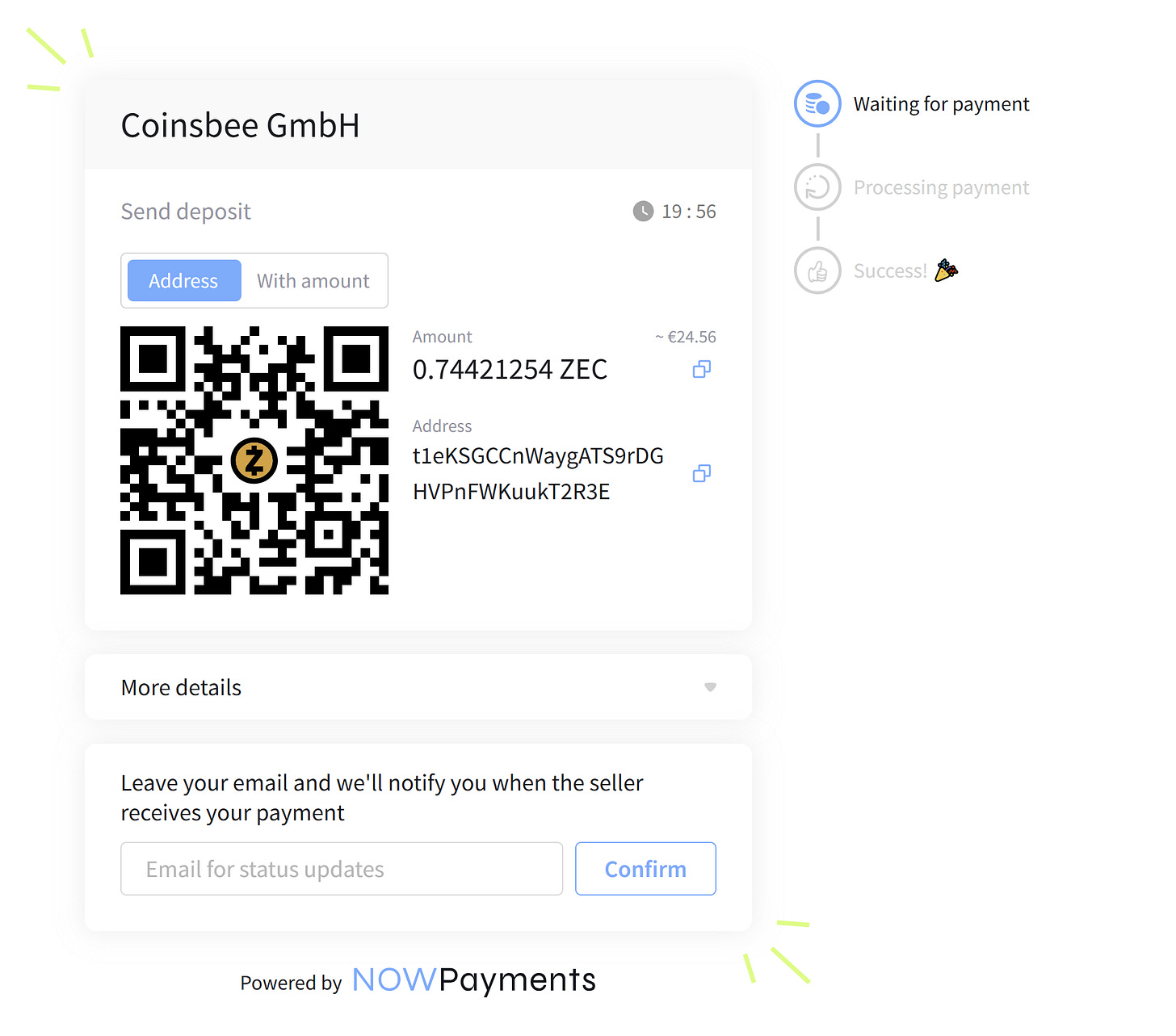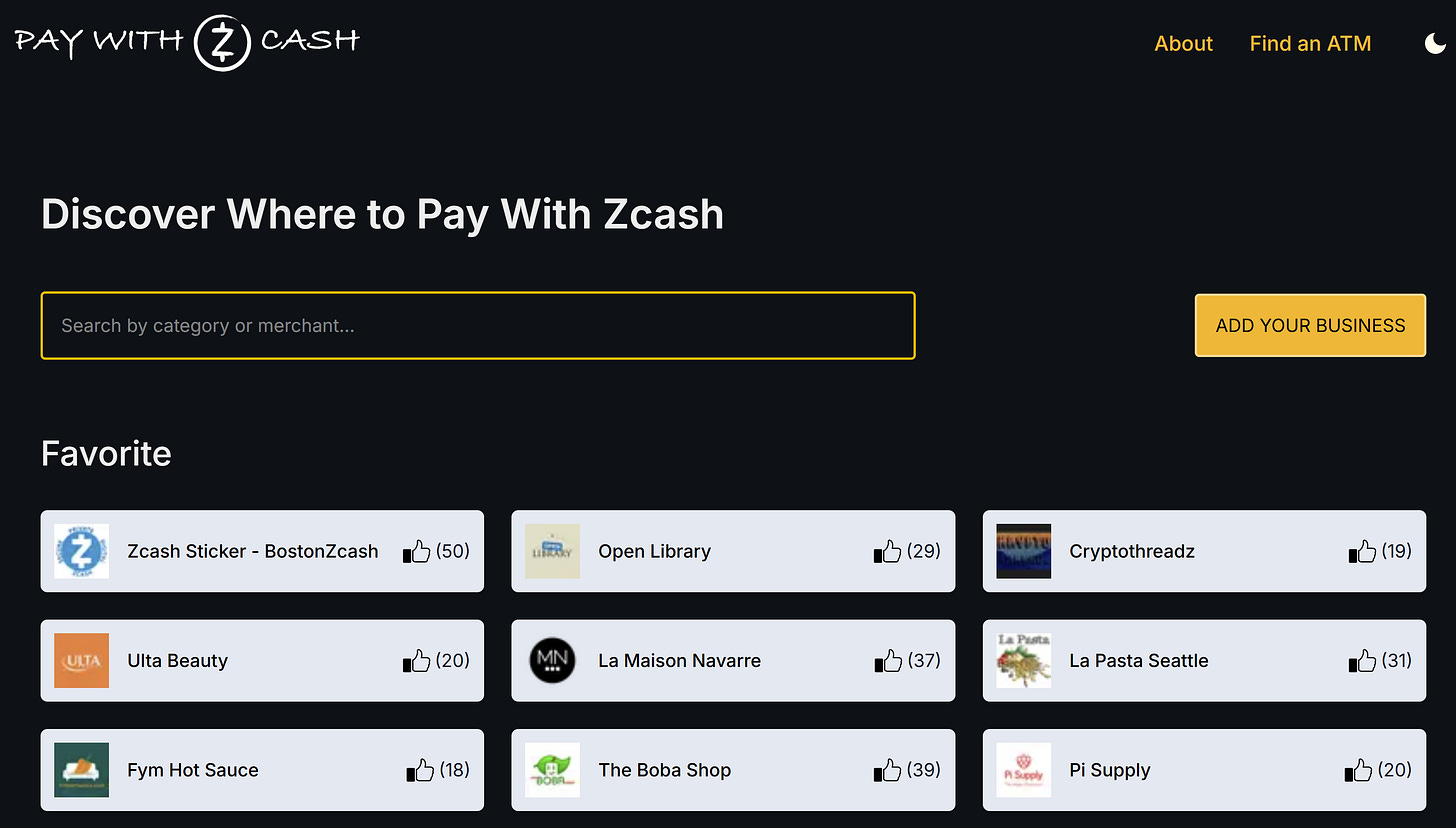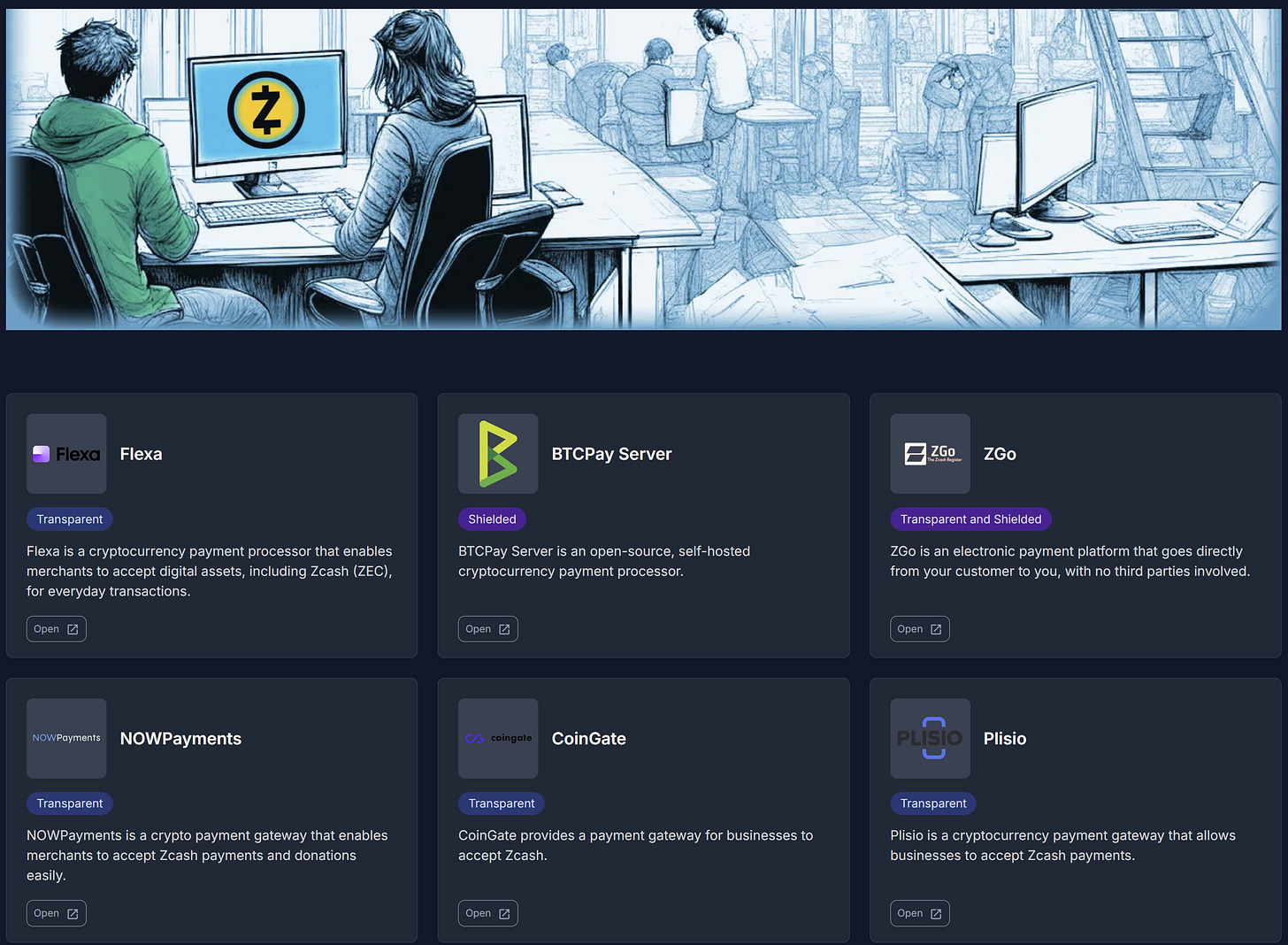Zero to Zero Knowledge | Payment Processors
A Quick Start Guide on Crypto Payment Gateways for Merchants
Payment Processors
A Crypto Payment Processor is a service that allows merchants to accept payments in digital assets such as Bitcoin, USDC, or Zcash, while abstracting away the complexity of interacting directly maintaining blockchain infrastructure. Payment Processors (Gateways) handle address generation, transaction listening and fiat conversion.
Payment Flow normally begins when the gateway generates a unique receiving address with associated invoice number and embedded payment QR code. Due to price fluctuation, invoices must be paid within a given timeframe for a fixed exchange rate to be fulfilled.
Once a customer sends funds, the gateway backend detects the transaction either by subscribing to mempool events or by polling via an RPC listener. Once a given number of block confirmations are settled, the processor marks the invoice as paid and (optionally) initiate fiat settlement to the merchant bank account.
Accepting cryptocurrency to your store opens access to a Global Customer Base without the friction of traditional payment rails. Unlike credit cards & bank transfers, crypto payments are not subject to added 'processing fees'. Depending on the network used it also permits faster settlement, especially international transactions.
Owning crypto assets such as Bitcoin or Zcash also serves as a hedge against Fiat Currency Inflation, a growing necessity in many countries around the world. By supporting crypto payments alongside Card or Paypal, you provide customers freedom to pay according to their preference.
Zcash offers customers the ability to Privately Pay for Goods and Services without exposing personal financial details such account balances, previous transactions and counterparties.
Additionally, merchants are protected from excessive or fraudulent chargeback claims. Because cryptocurrency transactions are peer to peer and irreversible, business processes are made more efficient. This comes alongside the added advantage of Micropayments becoming viable with merchants capable of profitably selling digital goods.
Using a Payment Processor
Integration
Integrating a Crypto Payment Processor with your e-commerce store requires evaluating the available API or SDK support, webhook reliability, and ease of integration with your existing Order Management System.
The payment processor must safely handle async confirmations - where a payment is broadcast to the network but requires several block confirmations before settlement. Merchants dealing with high value orders may wish to configure custom confirmation depths & handling of under or over-payments.
For privacy-preserving chains like Zcash where a source address is not attainable, refund address fields may be necessary.
Payment Processor Integration Requires:
Obtaining API credentials: Sign up with Gateway, Generate API keys / Auth tokens.
Implement invoice creation: Use the Gateway API to create unique invoices with corresponding network addresses or QR codes.
Handle payment detection: Subscribe to webhooks or poll the processor’s status to track invoice states, adding configurable block confirmation thresholds.
Add refund and exception handling mechanisms (Optional): Create flows for handling underpayment/overpayments, expired invoices, and refunds.
Security
Security is a key critical consideration for merchants. The most secure setups use a non-custodial model, generating addresses directly under the merchant’s control. When a custodial model is used, the gateway stores private keys, this increases attack surfaces requiring multisig wallets or trusted custodians.
As cryptocurrencies are decentralised networks new threats such as double spends must be taken under consideration. Safe storage of seed phrase or private keys for your funds is a neccesity: Read this Guide on Seed Phrases.
BTCPay
BTCPay is an open-source, self-hosted cryptocurrency payment gateway designed to give merchants full control over payment handling without relying on third-party intermediaries. It can be run on personal hardware, or on a VPS.
It communicates directly with the blockchain via a connected lightwallet server. This architecture eliminates custodial risk and centralising points of censorship while also ensuring all private keys remain under the merchant’s control.
Once deployed, the merchant’s store interacts directly with BTCPay via a JSON-based API, with invoices, payments, and refunds managed entirely on their own infrastructure.
BTCPay is widely regarded as a good, payment processor. One example of a succesful integration being Namecheap Domains. A recent case study shows between their first transaction in May 2020 to October 2024:
1.1M transactions processed
Over 500k users
$73M+ in revenue
Payments from 200+ countries worldwide
Notable services to recently integrate the BTCPay Server Zcash plugin are Nym VPN, CoinCards and MyNymBox Anonymous Domains.
Modularity and Extensibility is another feature, supporting multiple plugins for coins, Point of Sale terminals, and accounting integrations. The Zcash plugin is one such extension that can be installed to enable support for private payments. At present Zcash Sapling payments are possible, with development in progress to enable Orchard payments.
Mavapay is another such integration, allowing for fiat conversion of Bitcoin Lightning payments to Nigeria NGN, Kenya KES and South Africa ZAR. It could in theory be used as a suitable platform by merchants across Africa to accept Zcash payments.
BTCPay Server is an ideal solution for merchants intent on providing secure private payments for goods or services while maintaining full control over funds. Numerous plugins: BitPay, Trocador and Sideshift can be offered to customers alongside a wide range of coins eg. Bitcoin, Zcash, Litecoin and Monero.
🟩 Read our guide on BTCPay Zcash Integration
Zgo “The Zcash Register”
Zgo offers a secure, confidential and autonomous method for making Zcash payments accessible to all users. It can seamlessly adapt to the diverse needs of various organizations, through its various features.
🟧 Zgo “The Zcash Register”
To create an account you will need a Zcash wallet with a small amount of ZEC.
Visit → https://zecfaucet.com
Non Custodial/Decentralized: ZGo operates on a non-custodial basis, emphasizing the security and privacy of your financial transactions. All Zcash payments follow a direct path from customer to merchant wallet.
Flexibility: Depending on the scope or duration of your usage, various subscription plans are available.
Mobility: ZGo is optimized for desktop & mobile devices, your shop is readily accessible wherever and whenever you need it. It can be used by any device equipped with a web browser.
WooCommerce
ZGo has a dedicated plugin for WooCommerce, a widely utilised e-commerce platform integrated with WordPress. The Zgo plugin equips online store owners with the capability to extend Zcash Shielded Payment to their customers, enhancing the flexibility and choice available at checkout.
Upon implementation, the plugin provides a user friendly interface, presenting a QR code for Zcash payment. Simultaneously, it tracks the Zcash chain for payment confirmation relaying this information to the WooCommerce store. This process ensures that shop owners enjoy an experience akin to using a traditional payment processor.
Simultaneously, the system interfaces with the WooCommerce store database to mark customer's orders as paid: vital for inventory management, order fulfillment, and maintaining accurate financial records.
Xero
Xero Accounting Software provides a convenient avenue for customers to settle invoices using Zcash.
This bridge between cryptocurrency and conventional accounting systems allows merchants to maintain their existing workflow and financial processes without disruption.
🟦 Guide on: Xero Integration Configuration
Zgo is an ideal solution for merchants with a Wordpress storefront. It is purpose built for Zcash payments, offering Orchard, Sapling and Transparent support. Customer support is readily available with account setup & plugin installation being relatively easy!
🟧 Our store uses Zgo, check it out: ZecHub Store
NowPayments
NowPayments is a custodial cryptocurrency payment gateway that provides merchants with an API-driven way to accept payments in a wide range of cryptocurrencies without running their own blockchain infrastructure.
One of its useful features is the built-in exchange functionality. Customers can pay in one cryptocurrency while the merchant receives settlement in another, using third party exchange partners.
The service supports both single-invoice payments and recurring billing, along with additional features like mass payouts and donation widgets for non-commercial projects.
Because it uses custodial wallets to receive and temporarily hold customer payments before forwarding them to a specified withdrawal addresses, it offers ease of maintenance and security requirements for non-technical merchants.
The platform supports Transparent Zcash addresses, allowing customers to privately send from their shielded balance into a store address. This payment flow reveals the time/date of deposit + amount received. In many cases Transparent addresses are used for Donations. A number of projects offer Zcash donations such as Tor Project, Internet Archive and Signal.
NowPayments integrates with most major e-commerce platforms like Shopify, WooCommerce, and Ecwid. It provides an easy to use & feature rich payment gateway. It allows a number of websites to accept Zcash payments. One such is Coinsbee for Gift Cards, Virtual Debit Cards and Vouchers.
🟦 Step by Step Guide to integrate NowPayments
In Summary
By diversifying available payment methods Crypto Payment Processors afford merchants access to a wider consumer base. They improve efficiency by leveraging the benefits of P2P Blockchain Networks, further ease merchant processes in preventing card issuer chargebacks, the offer configurable security through confirmation depth & allow merchants to retain full custody over their funds.
While some payment gateways such as NowPayments or CoinPayments allow for ease of use and integration by providing advanced features + managing private keys it also entails trust assumptions being placed in their custody model, security policies, and solvency.
Careful thought must be put into selecting the right Payment Processor for your store. All options presented in this guide support Zcash (ZEC) payments - if you own an online e-commerce store, try one of options mentioned!
Visit the updated Paywithz.cash site to add your store.
Full list of Payment Processors that support Zcash -> https://zechub.wiki/payment-processors



